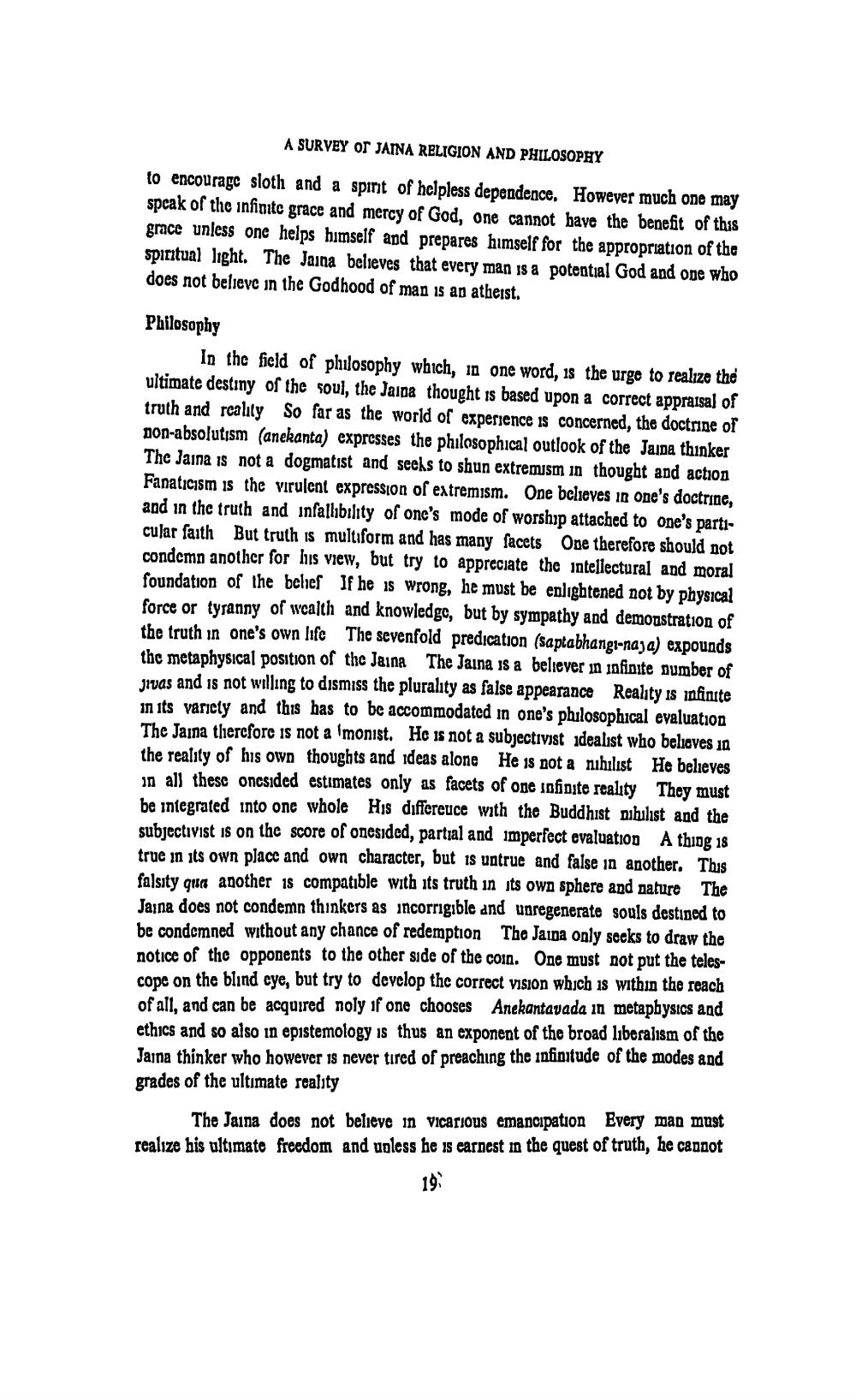________________
A SURVEY OF JAINA RELIGION AND PHILOSOPHY
to encourage sloth and a spint of helpless dependence. However much one may speak of the infinite grace and mercy of God, one cannot have the benefit of this grace unless one helps himself and prepares himself for the appropriation of the spiritual light. The Jaina believes that every man is a potential God and one who does not believe in the Godhood of man is an atheist.
Philosophy
In the field of philosophy which, in one word, is the urge to realize the ultimate destiny of the soul, the Jaina thought is based upon a correct appraisal of truth and reality So far as the world of experience is concerned, the doctrine of non-absolutism (anekanta) expresses the philosophical outlook of the Jaina thinker The Jaina is not a dogmatist and seeks to shun extremism in thought and action Fanaticism is the virulent expression of extremism. One bclieves in one's doctrine, and in the truth and infallibility of one's mode of worship attached to one's particular faith But truth is multiform and has many facets One therefore should not condcmn another for his view, but try to appreciate the intellectural and moral foundation of the belief If he is wrong, he must be enlightened not by physical force or tyranny of wealth and knowledge, but by sympathy and demonstration of the truth in one's own life The sevenfold predication (saptabhangi-naja) expounds the metaphysical position of the Jaina The Jaina is a believer in infinite number of Jivas and is not willing to dismiss the plurality as false appearance Reality is infinite in its variety and this has to be accommodated in one's philosophical evaluation The Jaina thiercfore is not a imonist. He is not a subjectivist idealist who believes in the reality of his own thoughts and ideas alone He is not a nihilist He believes in all these oncsided estimates only as facets of one infinite reality They must be integrated into one whole His differeuce with the Buddhist nihilist and the subiectivist is on the score of onesided, partial and imperfect evaluation Athing 18 true in its own place and own character, but is untrue and false in another. This falsity gua another is compatible with its truth in its own sphere and nature The Jaina does not condemn thinkers as incorrigible and unregenerate souls destined to be condemned without any chance of redemption The Jaina only seeks to draw the notice of the opponents to the other side of the coin. One must not put the telescope on the blind cye, but try to develop the correct vision which is within the reach of all, and can be acquired noly if one chooses Anekantavada in metaphysics and ethics and so also in epistemology is thus an exponent of the broad liberalism of the Jaina thinker who however is never tired of preaching the infinitude of the modes and grades of the ultimate reality
The Jaina does not believe in vicarious emancipation Every man must realize his ultimate freedom and unless he is earnest in the quest of truth, he cannot
19




